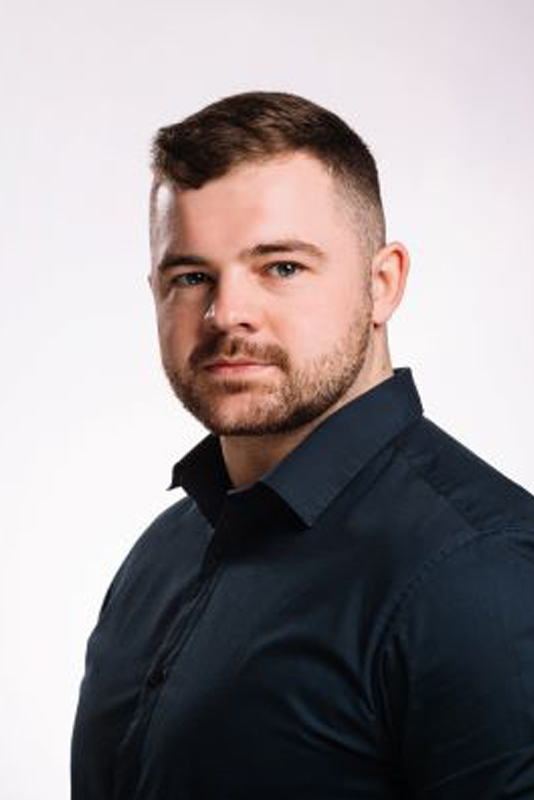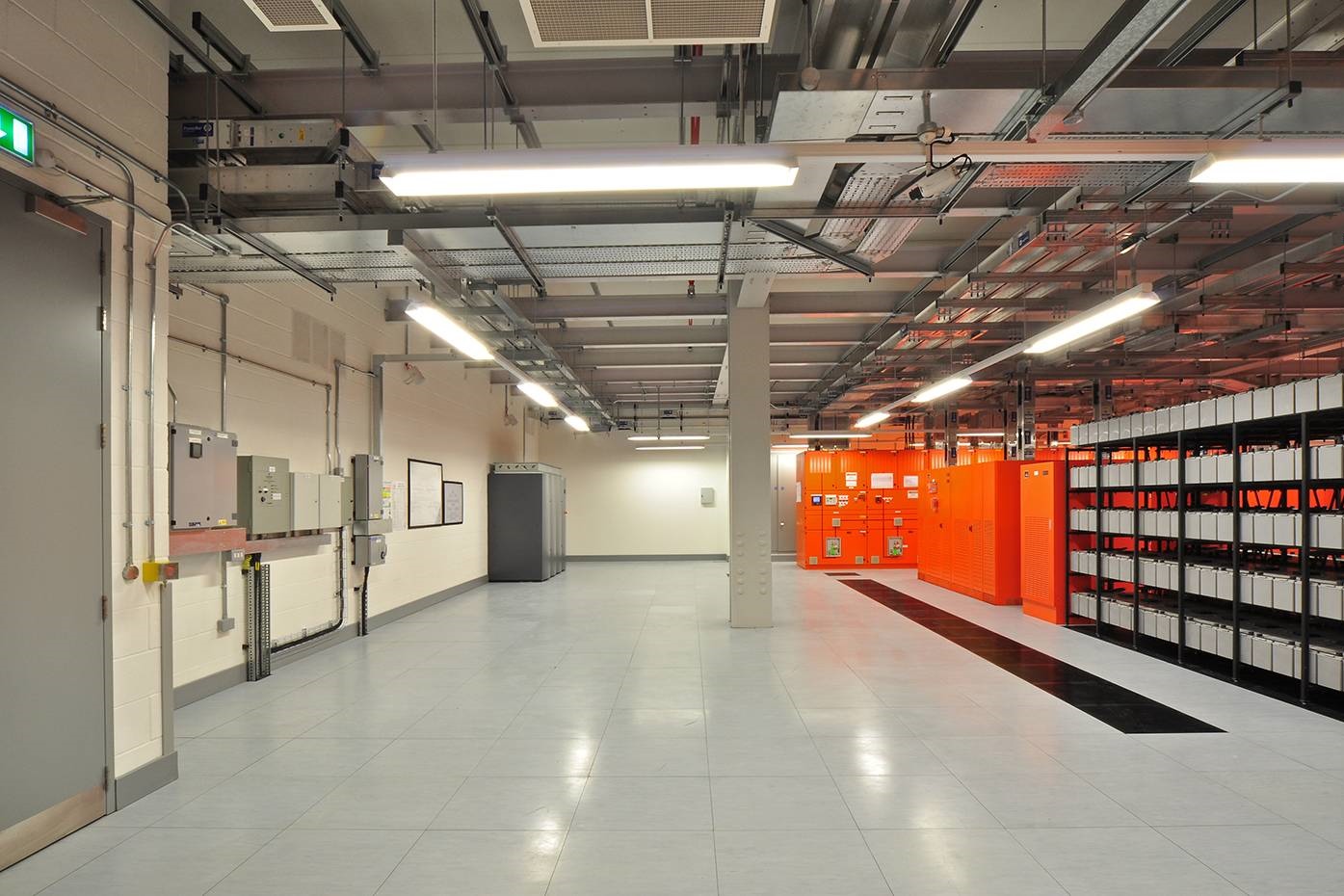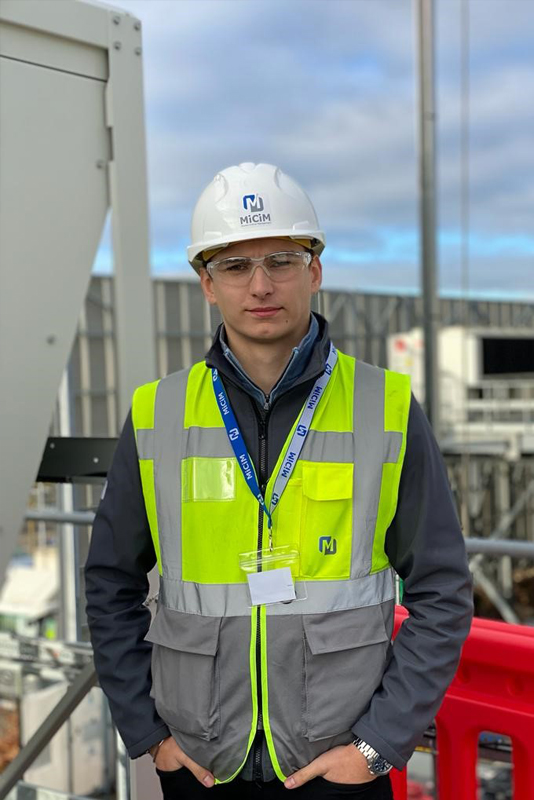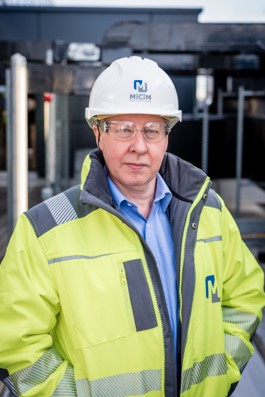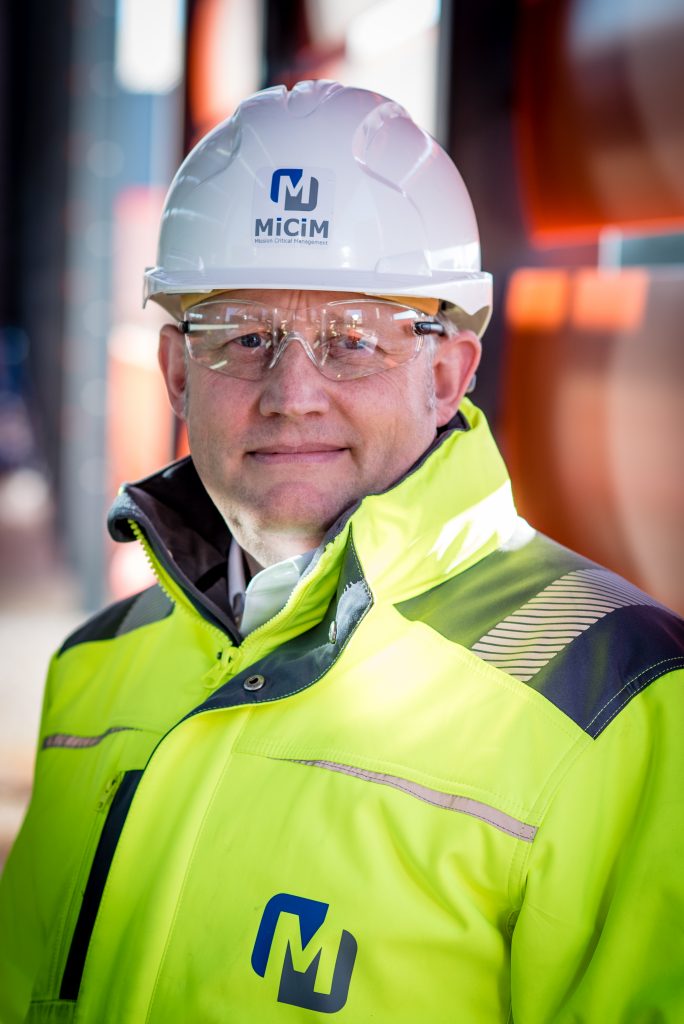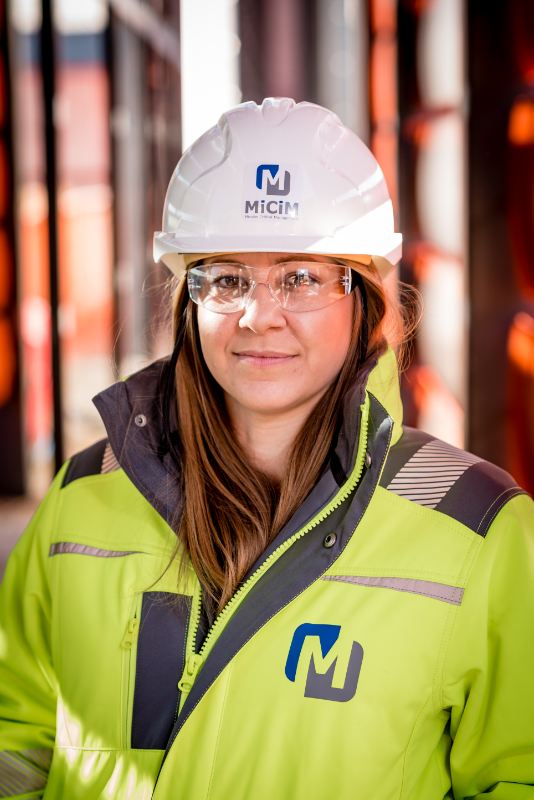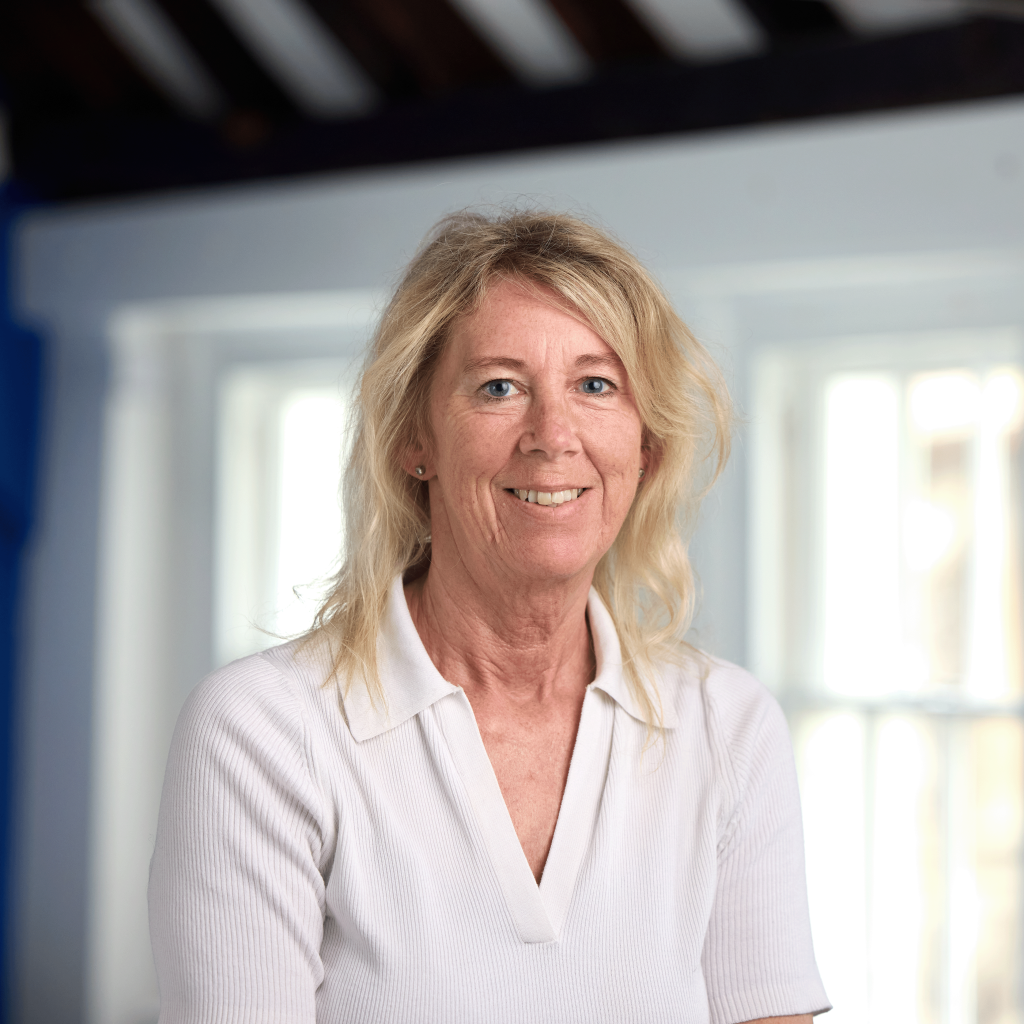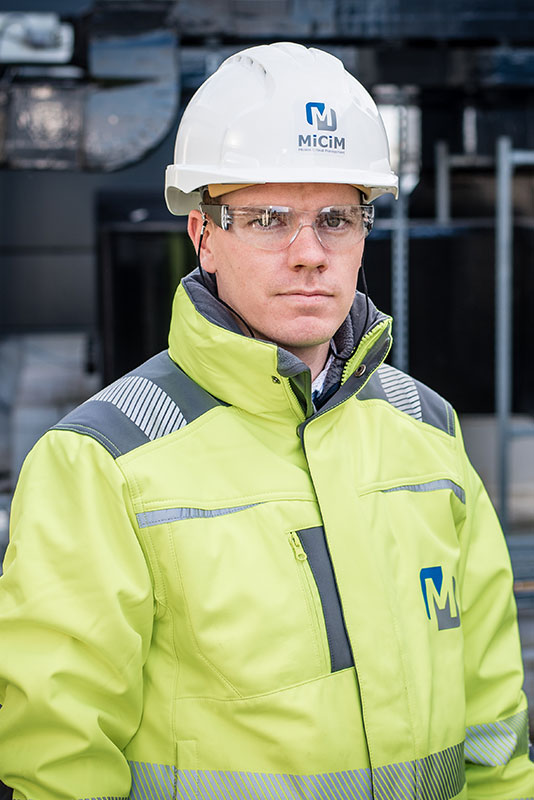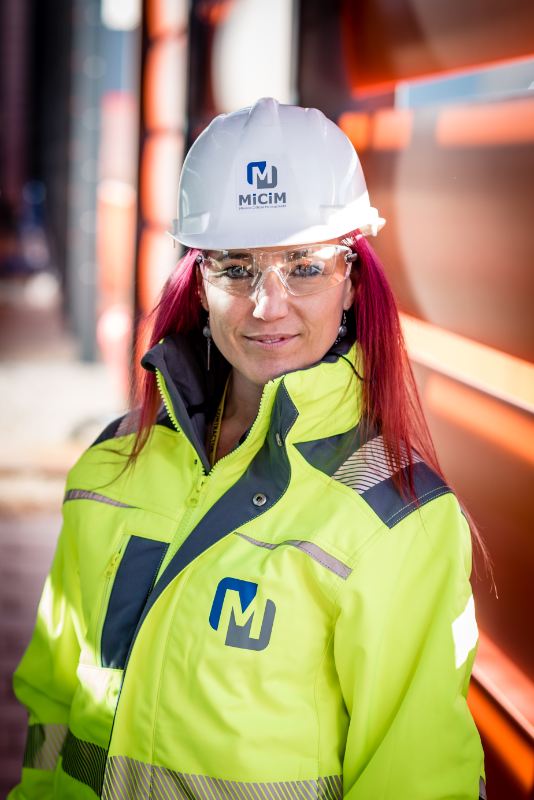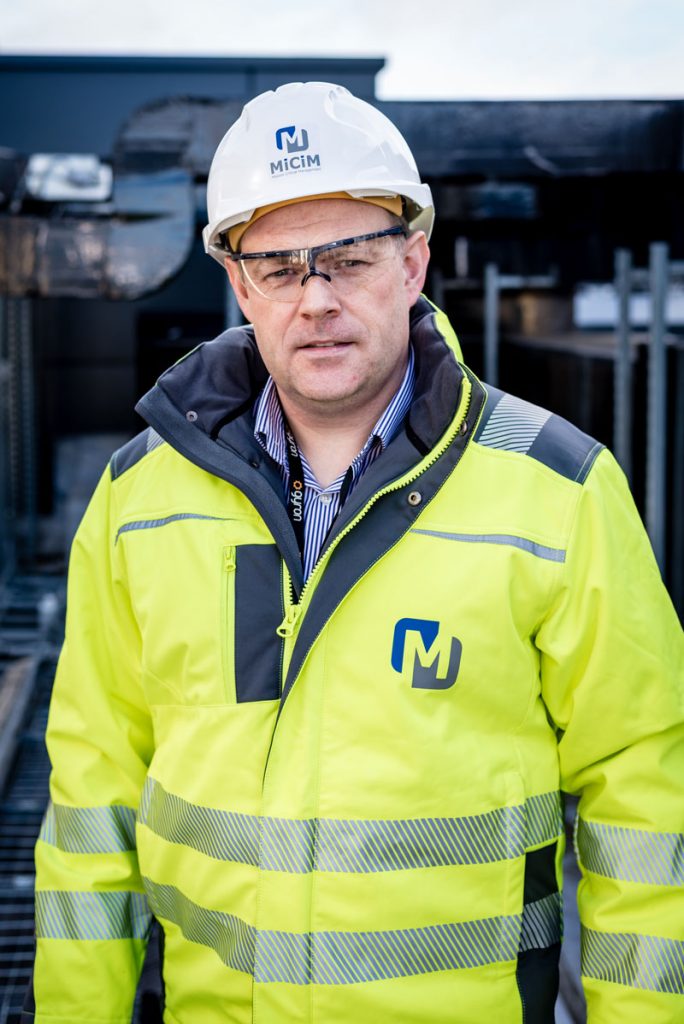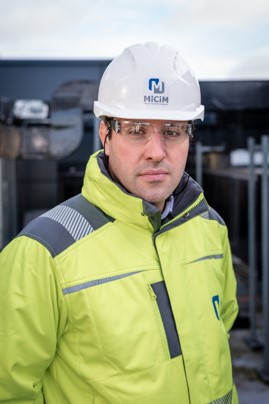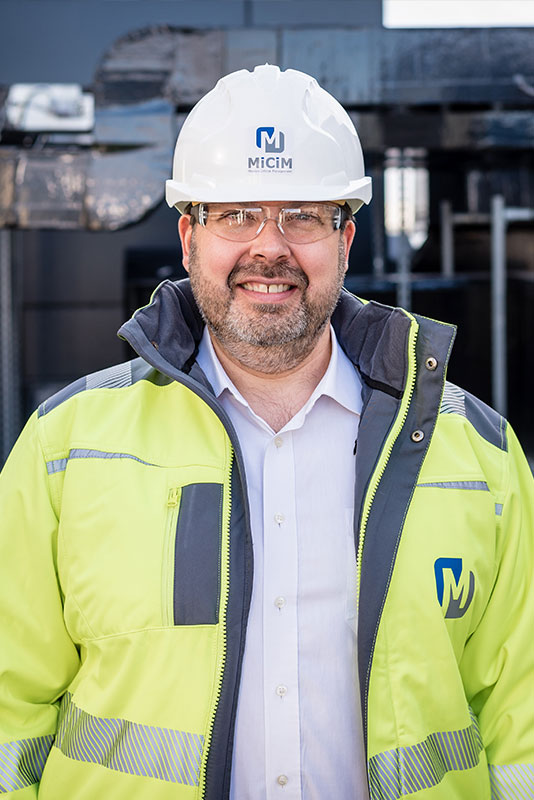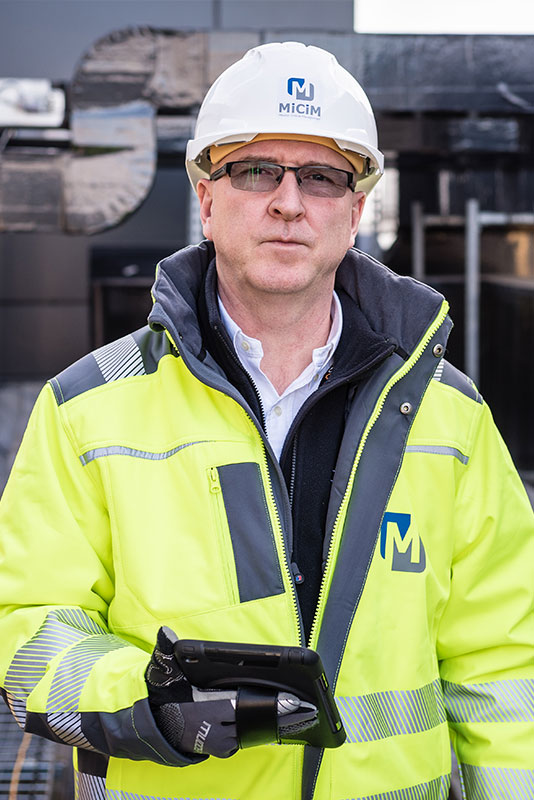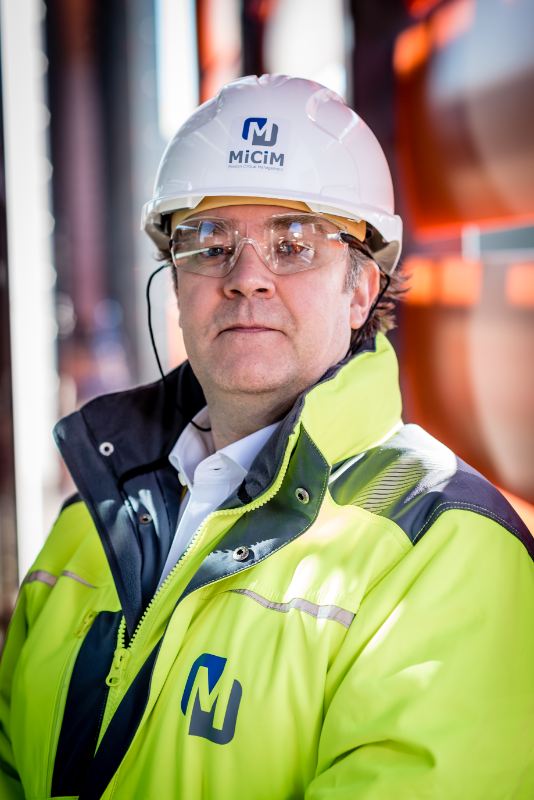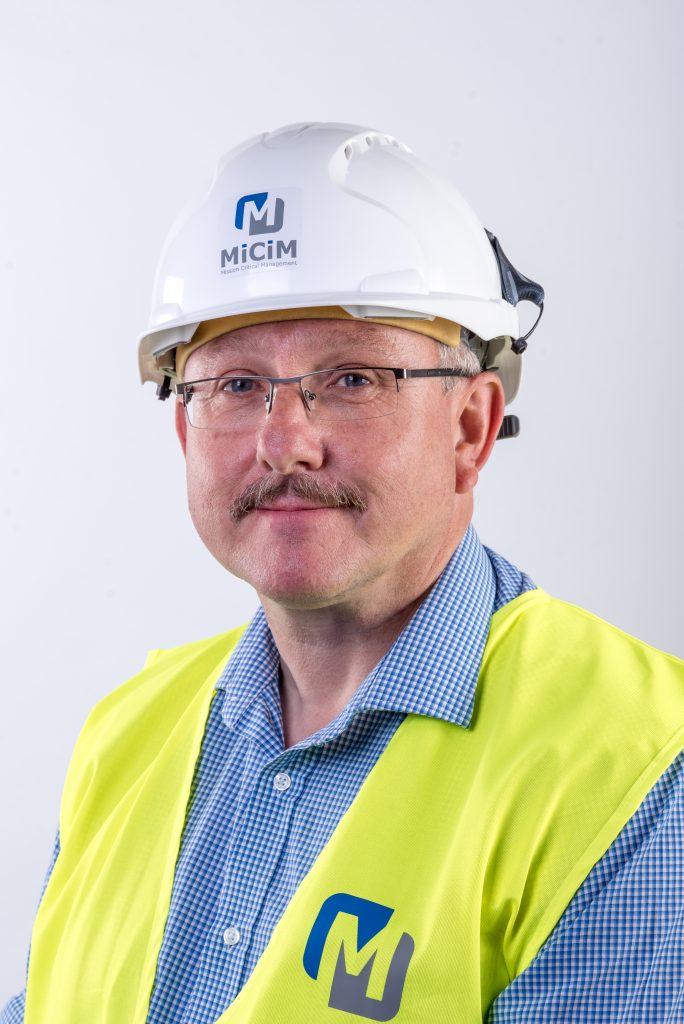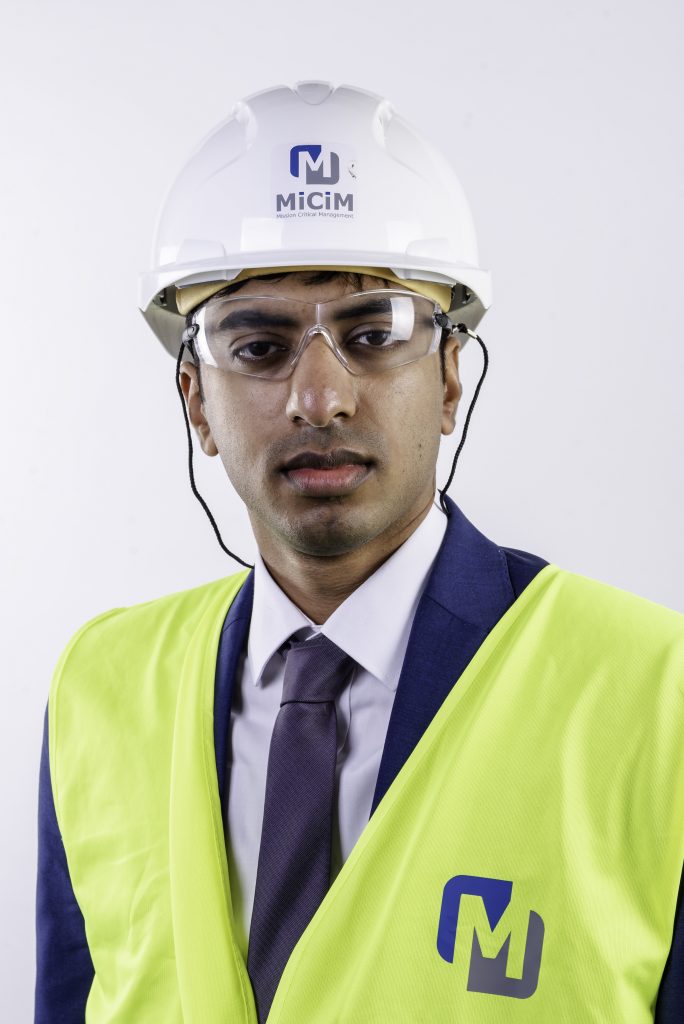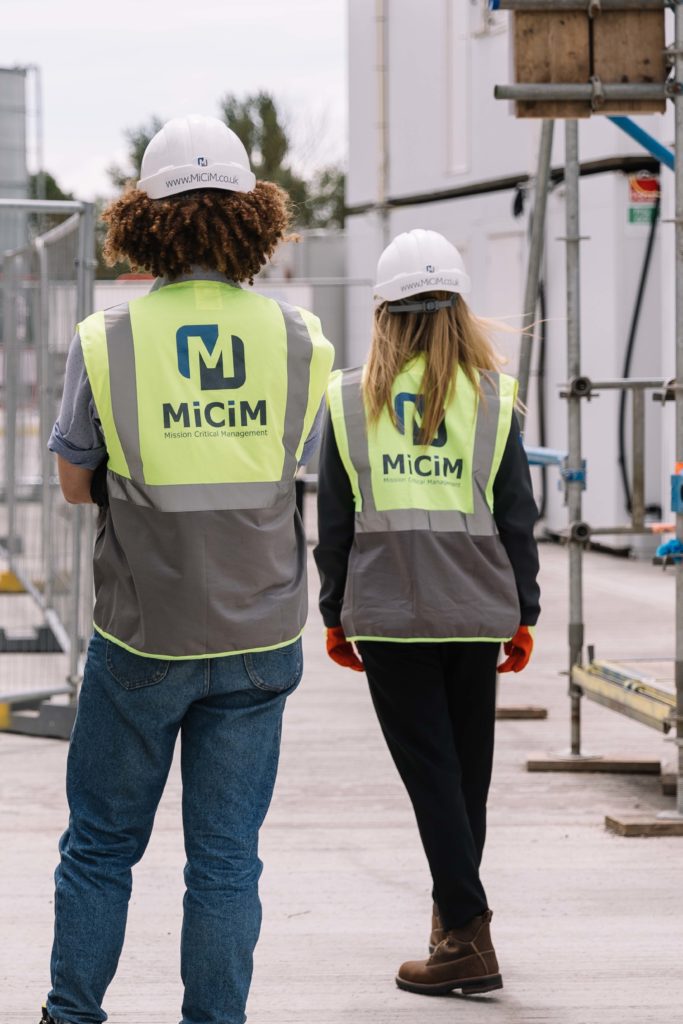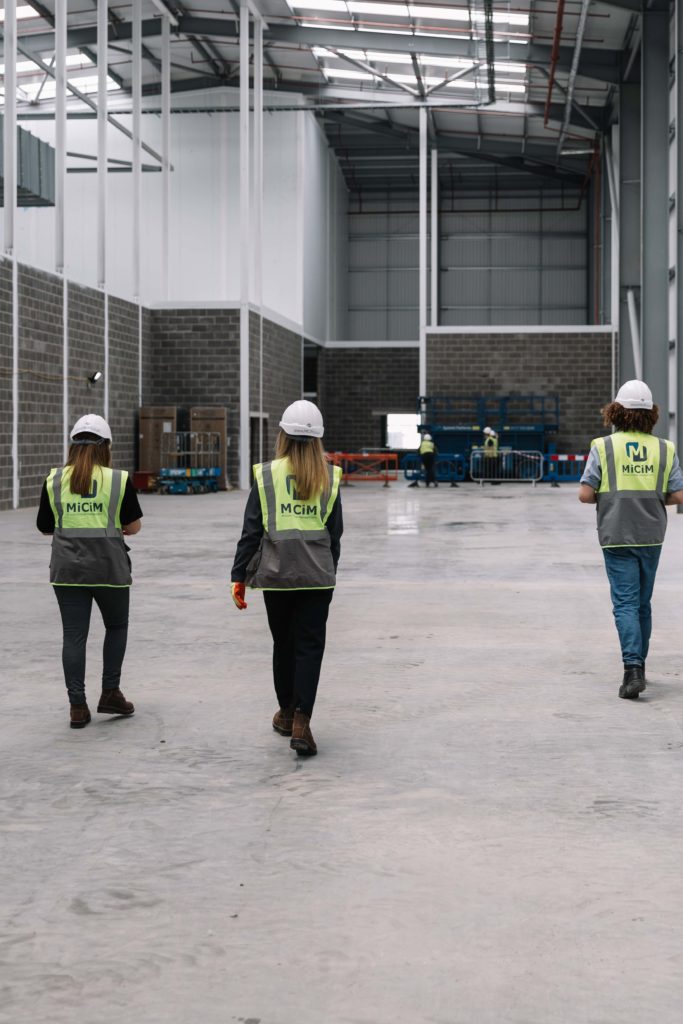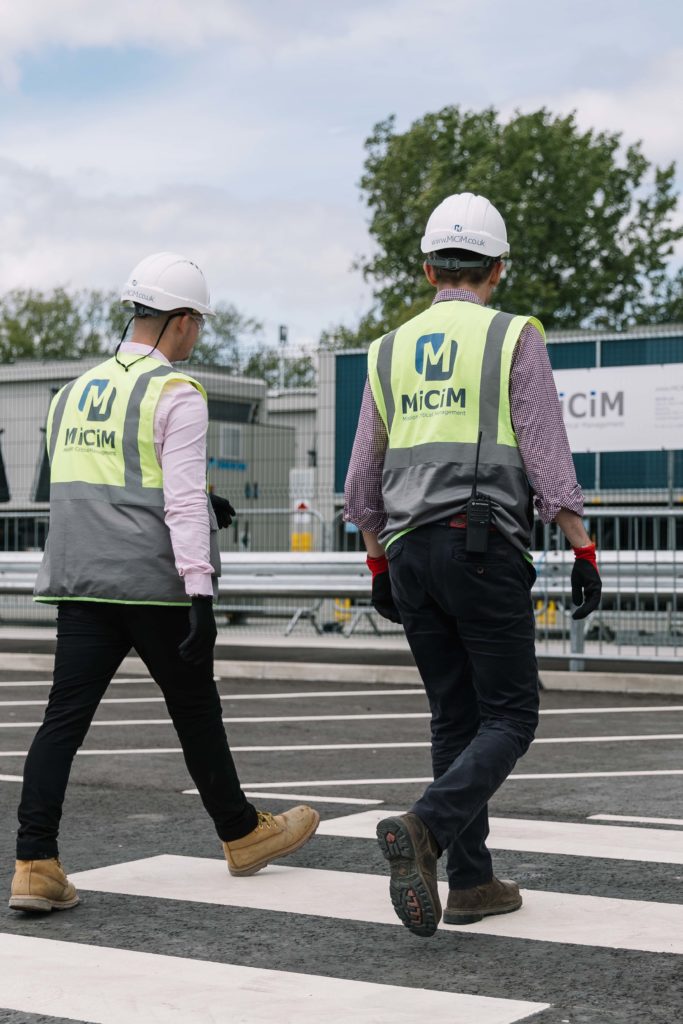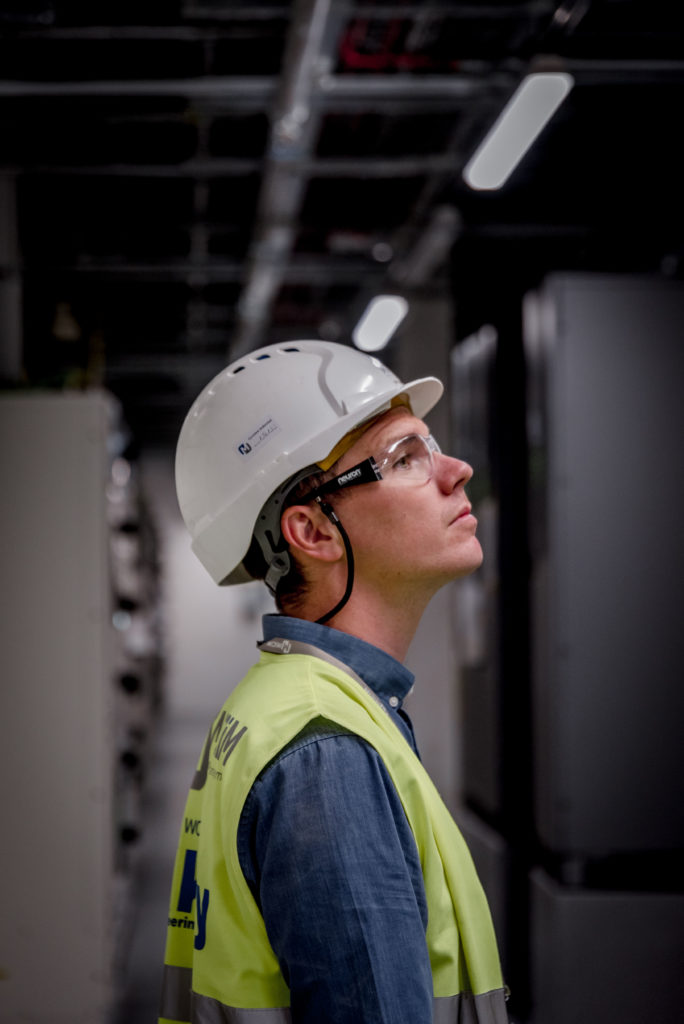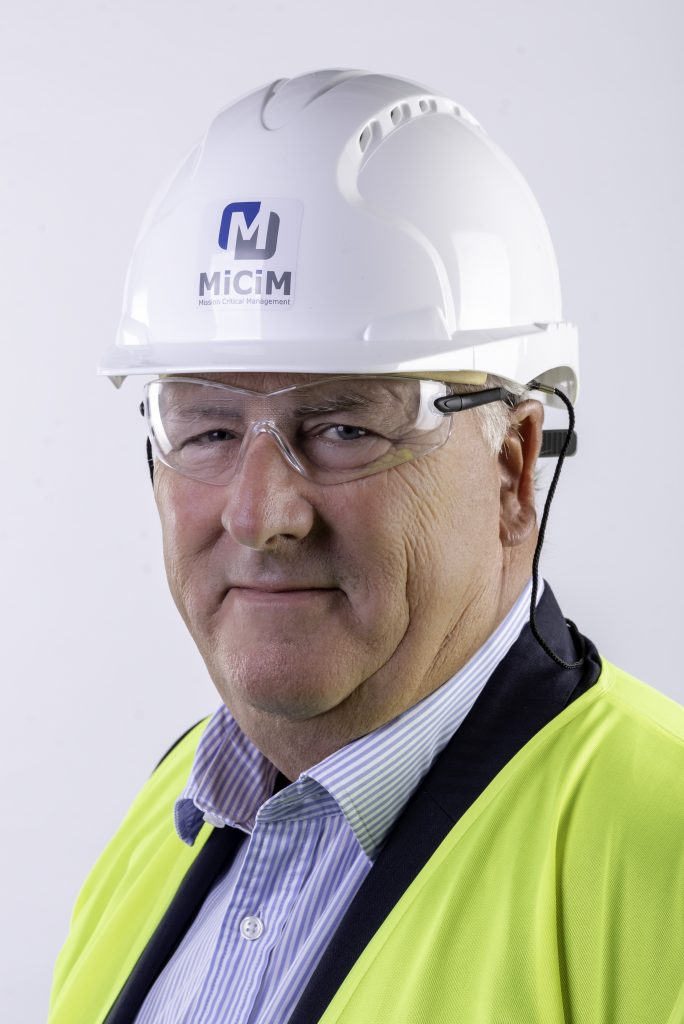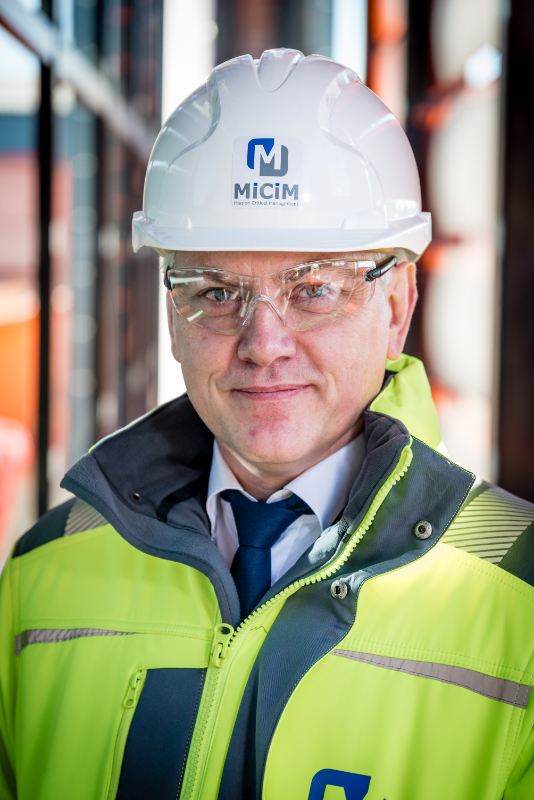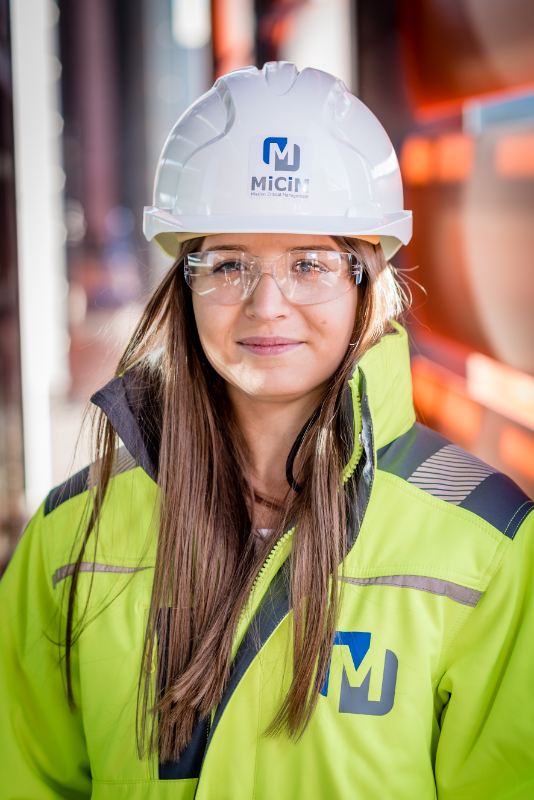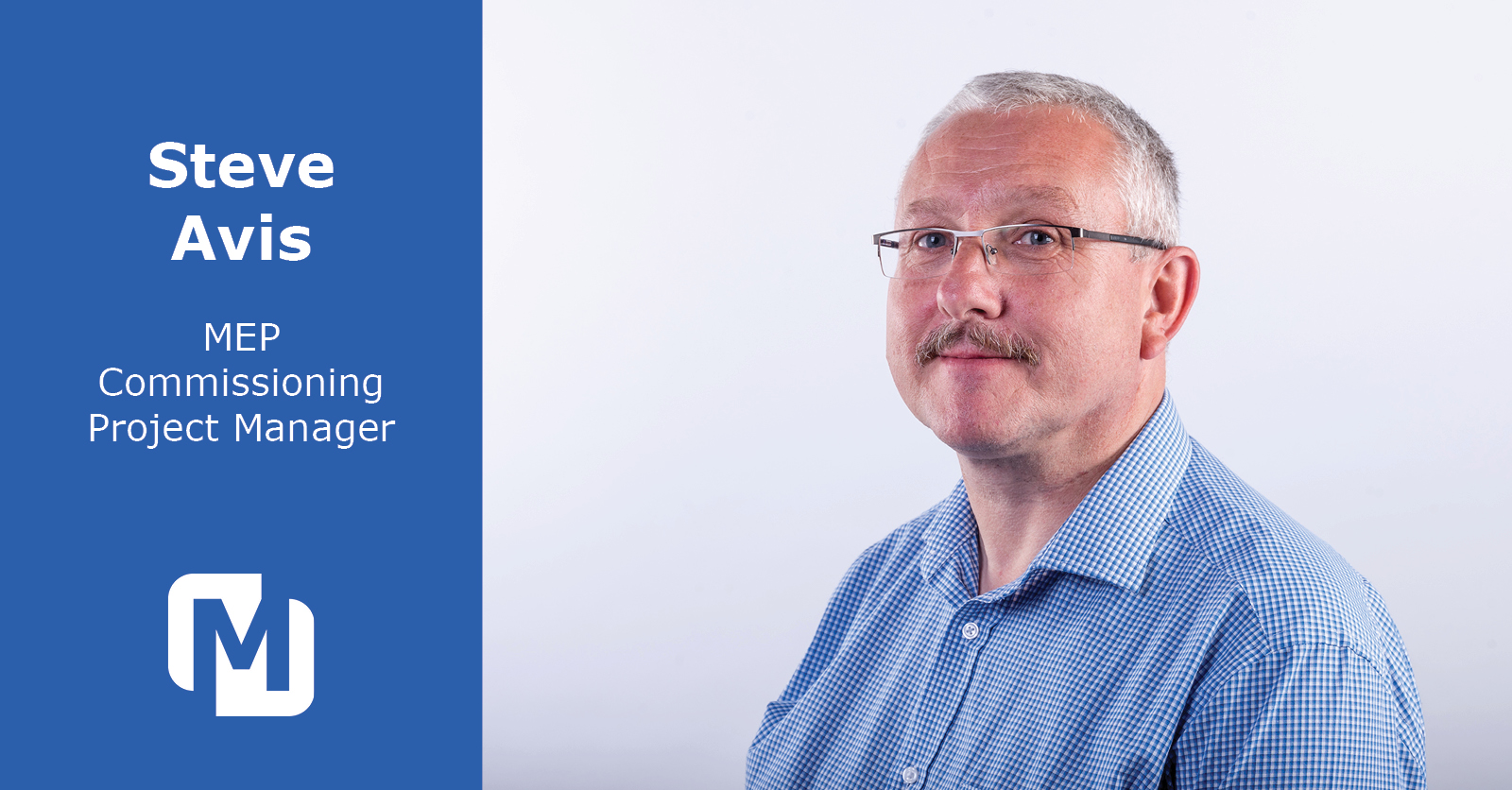
09 Dec “Spotlight” on Steve Avis
Steve Avis is our Senior MEP Commissioning Project Manager, starting with MiCiM back in April. He brings a wealth of experience and his extensive knowledge of commissioning with him. Read more about Steve as we delve into his career so far:
You have had a long and a highly pressurised career – what would you say are the key strengths you bring to a team?
I started with Crown House way back in the 80s (that is the nineteen 80s, AD, in case you were wondering). After I qualified as an electrical engineer I seized a wonderful opportunity to go off travelling while I had no real ties. However when I got back the UK job marketplace had changed and for the worse. But luckily for me a firm in Tunbridge Wells were looking to train up something they called “commissioning engineers”. They (C R Burgess Commissioning) proved to be absolutely superb and gave me a fantastic new career opening, along with lessons I resort to time and again. My mentor for most of this formative period was the sadly late, but forever great, Graham Chase. Under Graham’s guidance this young Commissioning engineer became manager and I have never seriously looked back since.
What are the main challenges in the mission critical sector?
There are more and more contractors out there now trying their hand at mission critical work and that means the competition is particularly keen at the moment. But this is a very specialist field and you really have to do your homework if things are going to go right; and I think you have to have a very tight ship like MiCiM if you are going to excel in this field. But clients set unyielding targets to achieve and commissioning all that is not for the faint hearted.
What kind of skills does one need to have to enable a career in the mission critical sector that spans for 25 years?
I am not a very practical person and not a super-technical whizz-kid. Our construction world is full of those – but who can give them all unity of purpose? Who can operate in so many overlapping fields – mechanical, controls, electrical, fire? If one day you can get inside the head of a site technician who may be the only person who can crack a problem, and then the next day explain how crucial resolving that issue is to clients and project engineers alike, you will go far. So communication, empathy, respect and encouragement, determination, leadership.
Over the course of your career, what would you say was your most challenging project?
After a delivering a successful D/C project for a major bank they asked us to fit out a fair-sized commercial hub for them in Canary Wharf. It wasn’t really even a mission critical project. From day one things just didn’t go right – and as months went by members of the team started dropping out or rolling over with the stresses and strains of it all. I started off as lowly commissioning bloke and finished up the project MEP lead – it nearly killed me, literally – half way through all that I got pneumonia as well. It was a challenge alright.
Is there any cutting edge technology which you are excited about, which will be at the forefront of the industry in the next few years?
D/Cs are fairly energy-hungry things and every efficiency gain is important, ethically and ecologically as well as economically. My personal favourite has been some superb British-made evaporative air coolers. There are many imitators on the market now but they are a super team to work with and their products are always improving.
Are there any skill/formulae/tech you learned in your formative years you still utilise today?
My first commissioning project was working on pharmaceutical clean rooms in Brussels. There I learned two skills that have always served me well, from engineers working in the methodical continental style. The first was to analyse all the tasks which make up a commissioning process and fully map them out – literally – on a big board. Through this process you have to live the lifespan of the project and imagine yourself at each turning point and ask yourself what your team would need in place to complete it successfully. The other skill was a bit more basic and technical – to really understand flows, pressures and resistances in a dynamic air or water system. It’s so crucial to fault finding and design analysis but the number of people who really grasp it are surprisingly few. Not bad for an old spark, eh?
As you are always heavily involved in the final push to complete a project, what are your coping mechanisms to deal with the pressurised environment you live in?
Tea, indulging in daft humour and lots of whistling. I get really hyper-focussed during these high-pressure periods when we all become red-hot conduits for everything that is going on, and I am embarrassed to confess that I am probably awful to be around, sorry! To cope, always have a book or two to hand to fall asleep over on the train home, a few good music podcasts and most importantly to have a terrifically supportive family at home.
What is it that you enjoy about working with the MiCiM team?
There is an abundant supply of tea and great people who will indulge my daft sense of humour and appalling whistling. Seriously though, there is a level of trust in each other which we all share and a feeling that we are all working towards a common goal. Other companies talk about it, but MiCiM actually do it. I feel very fortunate to be a part of it indeed.
After a busy working week, what do you do in your down time?
When I am not going off to watch my son’s beloved football team Gillingham FC I love to indulge my love of military history by wargaming. Wargaming is the replaying of historic battles, be they from 2018 AD or 480BC or anywhere in between. We don’t run around a field with swords, not at all! Rather, we have great fun researching, making, painting and playing out the different sides in miniature. It is brilliant practice for working in the construction industry or any other management field I can tell you. Apart from that, I love going to the movies, supporting local theatre (the Marlowe in Canterbury) and going to see live music whenever I can find the time. Anything goes, from Hawkwind to Mozart.


